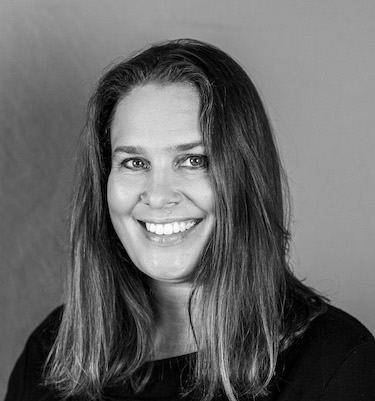Erin Friess Ph.D.
Professor
Auditorium Building 303

EDUCATION
PhD, Rhetoric, Carnegie Mellon University
MA, Professional Writing, Carnegie Mellon University
BA, English and History, Trinity University
BIOGRAPHY
Erin Friess is a professor of Professional and Technical Communication and the current
Director of Graduate Studies for the department. She received her PhD in Rhetoric
and her MA in Professional Writing from Carnegie Mellon University. Her research explores
Scrum and agile project management, usability/user centered design, and the technical
communication discipline. Her research has earned the Frank R. Smith Award for Outstanding
Article in Technical Communication, the Rudolph J. Joenk Award for Outstanding Article
in IEEE Transactions on Professional Communication, and the Best of CHI Award.
OUTSIDE THE CLASSROOM
She enjoys crocheting, not cooking, and watching her daughter play softball.
TEACHING INTERESTS
Usability/UX, Design, Technical Communication, Project Management
COURSES COMMONLY TAUGHT
TECM 4180, Advanced Technical Communication
TECM 5280: Designing Technical Documents
TECM 5750: Measuring Usability and User Experience for Professional and Technical
Communication
Project Management
RESEARCH INTERESTS
Scrum/Agile, Usability/User-Centered Design, Tech Comm Discipline
NOTEWORTHY PUBLICATIONS
R. Boettger and E. Friess (2020). "Content and Authorship Patterns in Technical Communication
Journals (1997-2017): A Quantitative Content Analysis." Technical Communication, vol
67, no. 3, pp. 4-24. Recipient of the 2021 Frank R. Smith Award for Outstanding Article
in Technical Communication.
E. Friess (2015). "Personas in heuristic evaluation: An exploratory study." IEEE Transactions
on Professional Communication, vol. 58, no. 2, pp. 176-191. Recipient of the 2016
Rudolph J. Joenk Award for Outstanding Article in IEEE Transactions on Professional
Communication.
E. Friess. (2012). "Personas and decision making in the design process: An ethnographic
case study." ACM CHI '12. Archival Research Papers on Human Factors in Computing Systems,
pp. 1209-1218. Winner of Best of CHI award, which is given to the top 1% of the 1500
papers submitted to CHI each year